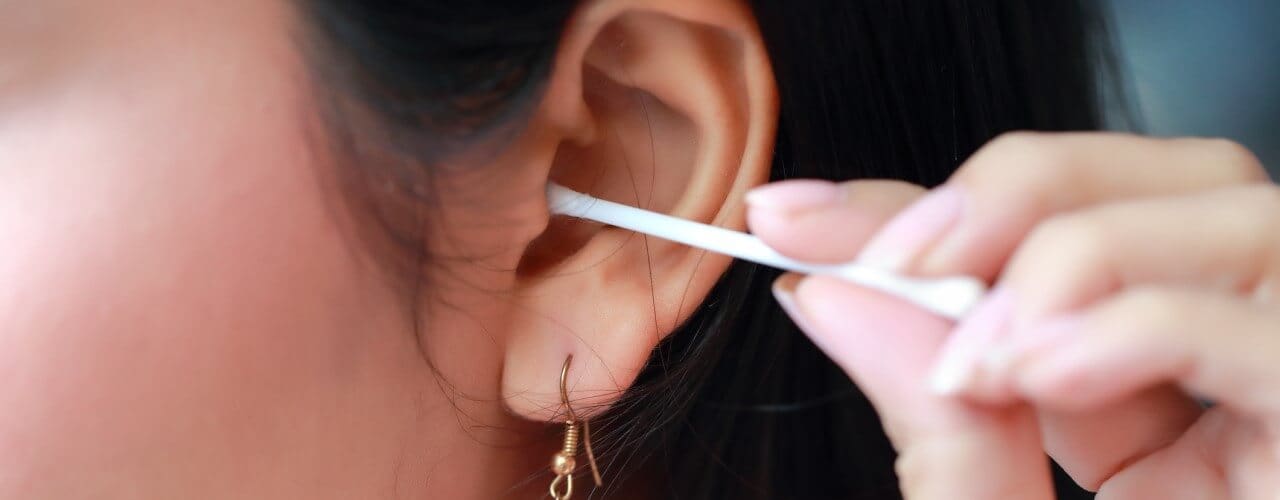Why is My Ear Wax So Hard?
Do you struggle with stubborn, hardened ear wax? If you've ever tried to clear it out only to find it's tough to remove, you're not alone. People often experience hard ear wax at some point. Let’s explore what causes ear wax to harden, how it impacts your ear health, and the best practices for hard ear wax removal.
Understanding Ear Wax: What Is It?
Ear wax, or cerumen, is a natural substance produced by glands in the ear canal. It serves as a protective barrier, trapping dust, debris, and microorganisms that could harm the delicate structures of the inner ear. Additionally, ear wax has antibacterial properties that help prevent infections. Its primary functions include:
- Lubrication: Prevents dryness and itching in the ear canal.
- Protection: Shields the ear canal from dirt, bacteria, and insects.
- Cleaning: Gradually moves outward, carrying debris and dead skin cells with it.
Why Is My Ear Wax So Hard?
Ear wax consistency varies from person to person. While some have soft, almost liquid-like wax, others produce hard, crusty ear wax. Several factors influence why ear wax becomes hard, including:
1. Genetics
Genetics play a significant role in determining your ear wax type. Some individuals naturally produce drier, flakier ear wax due to their genetic makeup.
2. Age
As we age, our bodies produce less oil, including in the ear canal. This reduction in oil production can lead to drier, harder ear wax in older adults.
3. Environmental Factors
Frequent exposure to dust, dirt, or dry air can affect ear wax consistency, causing it to become hardened and challenging to remove.
4. Excessive Cleaning
Over-cleaning the ears, especially with cotton swabs, can push ear wax deeper into the ear canal. This compacts the wax, making it denser and more challenging to remove.
5. Ear Canal Shape
Individuals with narrow or curved ear canals may have difficulty with natural wax clearance, leading to accumulation and hardening.
6. Health Conditions
Certain skin conditions like eczema or psoriasis can cause dryness in the ear canal, leading to hard ear wax formation. Additionally, ear infections may alter wax consistency.
Hard Ear Wax Removal: What Are Your Options?
If you have hard ear wax that's causing discomfort, impacting your hearing, or leading to ear infections, it's essential to address it safely. Here are some effective methods for hard ear wax removal:
1. Ear Drops
Over-the-counter ear drops can help soften hard ear wax, making it easier to remove. Look for products containing carbamide peroxide or hydrogen peroxide. Here’s how to use them:
- Tilt your head to the side.
- Apply the recommended number of drops into the ear canal.
- Keep your head tilted for a few minutes to allow the solution to penetrate the wax.
- Sit up and allow the excess solution to drain out.
2. Ear Irrigation
Ear irrigation involves using a syringe or a specialised bulb to flush out ear wax with warm water. You can try this method at home, but it's crucial to follow the instructions carefully:
- Fill a syringe or bulb with warm water (not too hot).
- Tilt your head to the side and gently squirt the water into your ear.
- Allow the water to drain out, carrying the softened wax with it.
3. Mineral Oil or Glycerin
Natural oils like mineral oil or glycerin can help soften ear wax. Apply a few drops into the ear canal before bedtime, and use a cotton ball to keep it in place overnight. Repeat this for several nights to soften the wax.
4. Hydrogen Peroxide Solution
A 3% hydrogen peroxide solution can help break down hardened ear wax. Mix equal parts of hydrogen peroxide and water, and apply a few drops into your ear. The bubbling sensation means it's working to dissolve the wax. Make sure to flush the ear with warm water afterwards.
5. Visit an ENT Specialist
If home remedies don't work or if you have severe symptoms, consider seeing an ear, nose, and throat (ENT) specialist. They may use specialised instruments or a suction device to safely remove hardened ear wax.
6. Ear Microsuction
Microsuction is a procedure where a healthcare professional uses a small suction device to gently remove ear wax. It’s quick, safe, and effective for hard ear wax removal.
Prevention Tips for Hard Ear Wax
Once you've cleared out the hardened ear wax, follow these preventive tips to reduce future build-up:
1. Avoid Cotton Swabs
Cotton swabs can push ear wax deeper into the canal. Instead, let your ears clean themselves naturally.
2. Use Ear Drops Regularly
If you’re prone to hard ear wax, using softening drops regularly can prevent accumulation.
3. Stay Hydrated
Drinking plenty of water keeps your body and ear wax hydrated.
4. Limit Exposure to Dust and Debris
Wear ear protection in dusty environments to prevent wax from hardening.
5. Visit Your Doctor Regularly
Regular ear check-ups can help detect and prevent ear wax buildup early.
When to Seek Medical Help
If you're experiencing any of the following symptoms, consult a healthcare provider for hard ear wax removal:
- Hearing Loss: Difficulty hearing in one or both ears.
- Earache or Discomfort: Persistent pain or discomfort in the ear.
- Dizziness or Balance Issues: Feeling unsteady or dizzy.
- Ear Infection Symptoms: Drainage, foul odour, or swelling.
Your healthcare provider may recommend an ENT specialist or an audiologist for further evaluation and treatment.
Hard ear wax can be uncomfortable, but it's a manageable condition. By understanding the causes and exploring safe methods for removing hard ear wax, you can maintain healthy ears and prevent future buildup. If you're unsure which method to choose or need professional help, consult your healthcare provider for personalised advice.
Don't let hard ear wax interfere with your hearing and comfort. Contact us today to soften and safely remove it, ensuring optimal ear health for the future.

